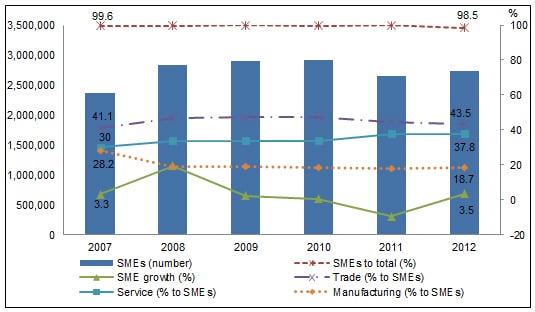Thailand’s current development model may not be able to sustain growth in the long term. Thailand needs to make the shift to a knowledge-based, innovative economy — and this means that policy settings will need to change.
Thailand’s economic development derives mainly from cheap labour. The manufacturing sector relies upon foreign technology. With comparatively low labour costs, as well as government support for infrastructure and investment incentives, the Thai manufacturing sector has thrived as the main driver of economic growth over the past few decades.




